Related Research Articles

Andrew John Biemiller was an American politician and labor union officer.
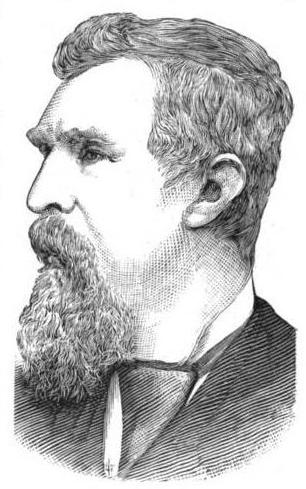
Henry Smith was a millwright, architect, builder and politician who was elected a member of the United States House of Representatives from Wisconsin from 1887 - 1889 as a member of the Union Labor Party. He also served as a Socialist member of the Wisconsin State Assembly in 1878. At different times, Smith ran for office on the Socialist, Greenback, Democratic and Union Labor tickets.

Ben Rubin was a cigar maker, zookeeper, union activist and member of the Wisconsin State Assembly from Milwaukee who served four terms. He was elected in 1930 and served one term as a Socialist. He was later elected as a Progressive on a fusion ticket, serving for six years (1937–1942).
Carl Minkley was an interior decorator, housepainter, labor movement activist and Socialist Party of America politician from Milwaukee, Wisconsin who served two terms in the Wisconsin State Assembly.
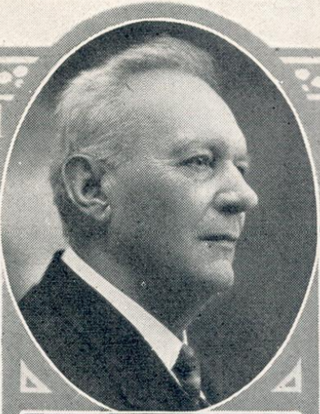
Frank J. Weber was a seaman, carpenter and union organizer from Milwaukee who between 1907 and 1926 served five (non-continuous) terms as a Socialist member of the Wisconsin State Assembly.
Henry J. Ohl Jr. was a Wisconsin typographer and trade union leader, president for many years of the Wisconsin State Federation of Labor (WSFL). He also served one term as a Socialist member of the Wisconsin State Assembly from Milwaukee.
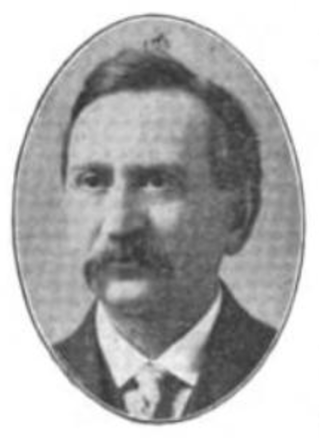
Edmund J. Berner was a trade union activist from Milwaukee, Wisconsin who served four terms as a Socialist member of the Wisconsin State Assembly.
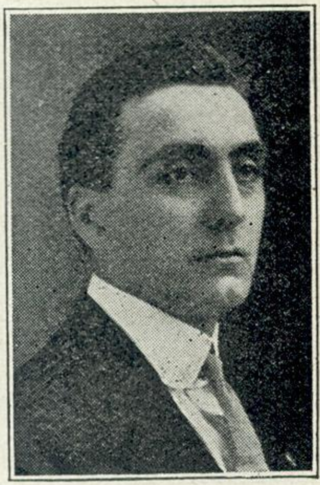
Herman O. Kent was a farmhand, typesetter and trade union activist from Milwaukee, Wisconsin who served two terms as a Socialist member of the Wisconsin State Assembly representing Milwaukee County's 9th Assembly district.
Arthur Kahn was a baker, trade union activist and organizer from Milwaukee, Wisconsin who served one term as a Socialist member of the Wisconsin State Assembly.
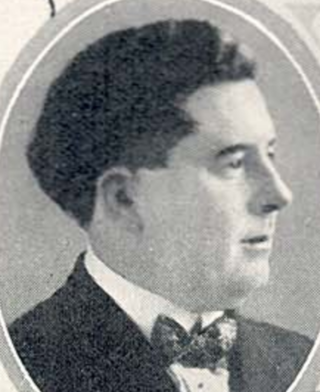
William C. Coleman was a house painter and trade union activist from Milwaukee, Wisconsin, who served two terms as a Socialist member of the Wisconsin State Assembly.
Henry Sievers was an assistant printer, trade union activist and liquor store operator from Milwaukee, Wisconsin who served one term as a Socialist member of the Wisconsin State Assembly.
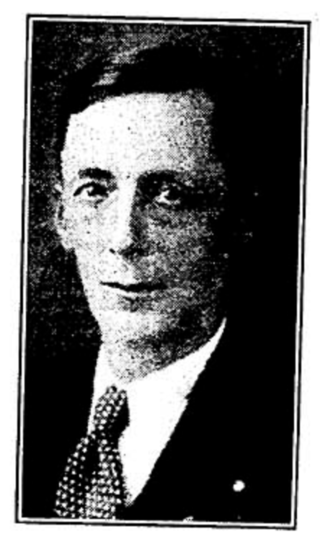
Emil Meyer was a linotype operator from Milwaukee, Wisconsin who served one term as a Socialist member of the Wisconsin State Assembly.
Edwin William Knappe was an American machinist from Milwaukee who became a lawyer, and who served one term as a Socialist member of the Wisconsin State Assembly.

Charles Edward Estabrook was an American educator, lawyer, eugenicist, and Republican politician from the U.S. state of Wisconsin. He was the 14th Attorney General of Wisconsin and served 14 years in the Wisconsin State Assembly, representing first Manitowoc and later Milwaukee. As a young man, he was an enlisted volunteer in the Union Army during the American Civil War. Later, he founded the Wisconsin Historical Commission and published several volumes of history of the Civil War for the Wisconsin Historical Society.

Frederick Carl Brockhausen, Jr. was a cigar maker and trade union activist from Milwaukee, Wisconsin who spent four terms as a Socialist member of the Wisconsin State Assembly.
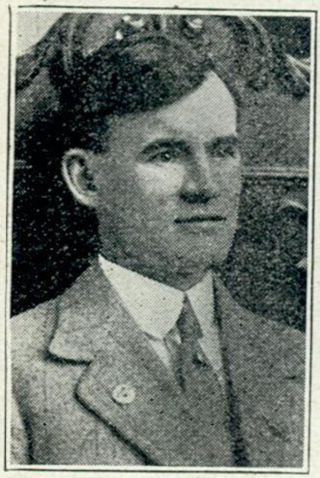
Frank B. Metcalfe was a glassblower from Milwaukee, Wisconsin who spent four terms as a Socialist member of the Wisconsin State Assembly and was twice the Socialist nominee for Governor of Wisconsin.

Walter Polakowski was an American upholsterer, trade union activist, and small business owner from Milwaukee, Wisconsin who served as a Socialist member of the Wisconsin State Assembly and Wisconsin State Senate for a total of 14 years. He was the older brother of John Polakowski, who succeeded him in the Assembly in 1922.

Edward Keogh was an Irish American immigrant, printer, Democratic politician, and pioneer settler of Milwaukee, Wisconsin. He served 17 years in the Wisconsin State Assembly between 1860 and 1895, representing Milwaukee's 3rd ward, and was the 37th speaker of the Assembly. He also served two years in the State Senate.
Michael John Egan was an American merchant and insurance agent who served two years as a Democratic member of the Wisconsin State Senate and two as a member of the Wisconsin State Assembly from Milwaukee County.
Daniel Darius Hooker was an American molder and tool manufacturer from Milwaukee, Wisconsin who served two terms as a member of the Wisconsin State Assembly. He was elected as a "Democratic Trades Assembly" candidate in 1882 ; and re-elected in 1884.
References
- ↑ "Members of the Wisconsin Legislature 1848–1999 State of Wisconsin Legislative Bureau. Information Bulletin 99-1, September 1999. p. 119 Archived 2006-12-09 at the Wayback Machine
- ↑ American Federation of Labor: History, Encyclopedia, Reference Book Volume 1. Washington, D.C.: American Federation of Labor, 1919; p. 61
- ↑ Heg, J. E., ed. The Blue Book of the State of Wisconsin Madison: pp. 496-497, 513, 517
- ↑ Heg, James E., ed. The blue book of the state of Wisconsin. Comprising the constitutions of the United States and of the state of Wisconsin, Jefferson's manual, forms and laws for the regulation of business; also lists and tables for reference, etc. Twenty-Third Volume. Madison: Democrat Printing Co., State Printers, 1885; pp. 414, 435, 436, 448, 453
- ↑ Office of the Sheriff, Milwaukee County, Wisconsin. Millennium History Book, 1835-2000 Milwaukee: Turner Publishing Company, 2001; p. 53
- ↑ Proceedings of the Thirty-Ninth Annual Meeting of the State Historical Society of Wisconsin Madison: Democrat Printing Company, State Printers, 1892; pp. 14-15
- ↑ Gompers, Samuel. The Samuel Gompers Papers, Vol. 1: The Making of a Union Leader, 1850-86 Champaign: University of Illinois Press, 1986; p. 217]
- ↑ "Supplement" The Typographical Journal Vol. XV, No. 6 (September 15, 1899); pp. 5, 15 et seq.
- ↑ "Summary of Convention Proceedings" The Typographical Journal Vol. XVII, No. 5 (September 1, 1900); pp. 177, 181, 190-192
- ↑ "Printers in Politics" The Typographical Journal Vol. XVII, No. 8 (October 15, 1900); p. 323
- ↑ "Michael P. Walsh" Capital Times April 3, 1919; p. 5